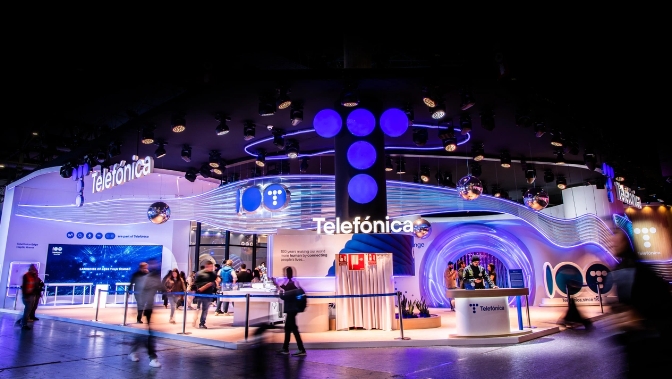AT&T could buy more AWS-3 spectrum next year
According to one analyst, there's a good chance the FCC will auction some AWS-3 spectrum next year, and AT&T could bid heavily to buy that spectrum.
"AT&T is the most likely," wrote Blair Levin, a policy adviser to New Street Research and a former high-level FCC official, in a recent note to investors. "It has less midband spectrum than peers, suggesting it will have the strongest appetite for the licenses in re-auction."
"Of course I'd be interested," AT&T CEO John Stankey said recently in response to a question about AT&T buying more spectrum if it became available. "If I can go in and pick up attractive spectrum that is harmonized with our existing holdings that we can go and get additional capacity without putting more capital into the network to do things, that's a good move for our shareholders. It's a good move for our customers."
Indeed, during its recent analyst day, AT&T said it would set aside around $10 billion for mergers, acquisitions or spectrum purchases. AT&T is also in the midst of a $14 billion refresh of its 5G network with vendor Ericsson.
However, a number of complex and convoluted puzzle pieces will need to fall into place for AT&T to actually get those AWS-3 spectrum licenses and put them to use inside its 5G network.
Ripping and replacing
First, according to Levin, Congress needs to pass the National Defense Authorization Act (NDAA). The legislation primarily provides funding to the US military, so there's a good chance it will be approved in some form.
The current draft of the legislation includes an extra $3 billion to fund the FCC's "rip and replace" program. That program is intended to fund the removal from US networks of equipment from Chinese vendors Huawei and ZTE that is deemed insecure by the federal government. However, US network operators hoping to get money from the program want a total of almost $5 billion, and so far they've only gotten a total of $2 billion.
The current version of the NDAA would plug that $3 billion shortfall by allowing the FCC to auction off some AWS-3 spectrum. The resulting revenues from that spectrum auction would be used to fully fund the rip and replace program.
Conducting an auction
The FCC lost its authority to auction the nation's airwaves in March 2023. That's because Congress failed to extend the agency's auction authority due to an ongoing battle in Washington over the future of the lower 3GHz spectrum band.
However, the current version of the NDAA would give the FCC a one-time pass to auction AWS-3 spectrum.
"The law requires an auction within 18 months but we think Chairman designee [Brendan] Carr will want to have an auction in his first year," Levin wrote, explaining that President-elect Trump's pick to head the FCC – Republican Commissioner Carr – would likely expedite an AWS-3 auction if he can.
But Levin wrote that the broader fight over the lower 3GHz band remains outstanding. Military officials don't want to relinquish spectrum in the lower 3GHz band without some kind of sharing component; the 5G industry generally does not want to share spectrum with anyone.
The Dish saga
The reason the FCC might have some AWS-3 spectrum to auction is because EchoStar's Dish Network eventually returned those spectrum licenses to the FCC.
Dish's AWS-3 adventures stretch back to 2014, when two bidding entities called Northstar Wireless and SNR Wireless bought $13.3 billion worth of AWS-3 spectrum in the FCC's initial AWS-3 spectrum auction in 2014. SNR and Northstar initially qualified as "designated entities," or DEs, in the FCC's 2014 auction. That made them eligible for a 25% discount intended for small businesses.
But after the 2014 auction ended, the FCC ruled that the two DEs should not receive that discount because they were too close to Dish financially. Dish fought with the FCC over the issue for almost a decade, but finally gave up last year after the Supreme Court declined to take up the issue.
Now the licenses are back within the FCC's purview to auction.
Finally, it's worth noting that Dish's EchoStar might be on the hook for additional expenses if the FCC's re-auction of AWS-3 spectrum generates bids below the $13.3 billion that the licenses garnered in the agency's first 2014 auction.
Who wants AWS-3?
According to the financial analysts at New Street Research, it's not entirely clear what the AWS-3 spectrum licenses might be worth today. After all, the value of spectrum is based on where it's geographically located, its propagation characteristics and how it might integrate with an operator's wider strategy, among many other factors.
But AT&T, T-Mobile, EchoStar and Verizon all might have interest in purchasing AWS-3 spectrum, which sits in Band 66 and spans 1695-1710MHz, 1755-1780MHz and 2155-2180MHz.
"All four carriers, including Dish, have deployed Band 66 which includes AWS-3," wrote the New Street analysts. "As such, none of them would have additional deployment costs [to put the spectrum into their networks]. We have argued that there is no such thing as too much spectrum; spectrum represents future market share; carriers always want more. We assume all four will bid on all of the licenses" in an FCC re-auction.
The analysts noted that the AWS-3 spectrum licenses that could be auctioned next year cover mainly New York City, Chicago and Boston, as well as some other locations.





